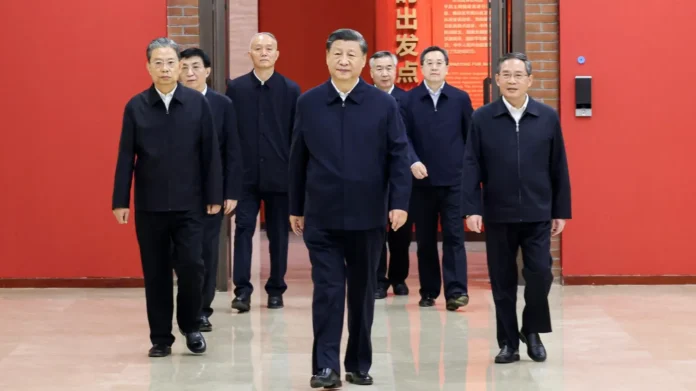Author: Frederick Kempe
Affiliation: CEO of the Atlantic Council
Organization/Publisher: Atlantic Council
Date/Place: June 27, 2021/USA
Type of Literature: Article
Word Count: 1900
Keywords: China, United States, Communist Party, Economy
Brief:
On the 100th anniversary of the founding of the Communist Party of China, the writer highlights China’s course by reviewing a group of articles in various international newspapers. The Chinese president today is turbulent and appears nervous about the future, in contrast to the authoritarian achievements in China. Meanwhile, systemic competition unfolds in our time by two different world systems that are competing globally, led by the US and China. Despite criticisms leveled against the burgeoning Chinese system, it has shown relentless flexibility as it overcame the crises that afflicted it since the Mao Cultural Revolution in 1966 and the Corona crisis in 2019, and many more. Meanwhile, democratic societies are facing an apparent decline, as was confirmed by the storming of the US Capitol building after the 2020 elections. The writer sees Xi’s policy of change—both internally and externall—as influenced by his conviction that the US and Western democracies are in a state of relative decline. Fearing a collapse like the experience of the Russian Communist Party, Xi seeks to consolidate his grip and absolute power within the party and the state. The Economist believes that the Chinese Communist Party’s control of affairs in China for 73 years without returning the reins to the people’s will is not new, as the many dictatorial regimes that preceded had governed in this manner and for even longer years. The biggest threat to Xi comes from within the party, especially around the possibility of succession. Brian Deese, director of Biden’s National Economic Council, argues that the US needs a 21st-Century industrial strategy to compete with China, one that is feasible but not protectionist, and built on five fundamental pillars: supply chain resilience, targeted public investment, public procurement, climate resilience, and equity to overcome the obstacles encountered.
By: Taqwa Abu Kmeil, CIGA Research Assistant




